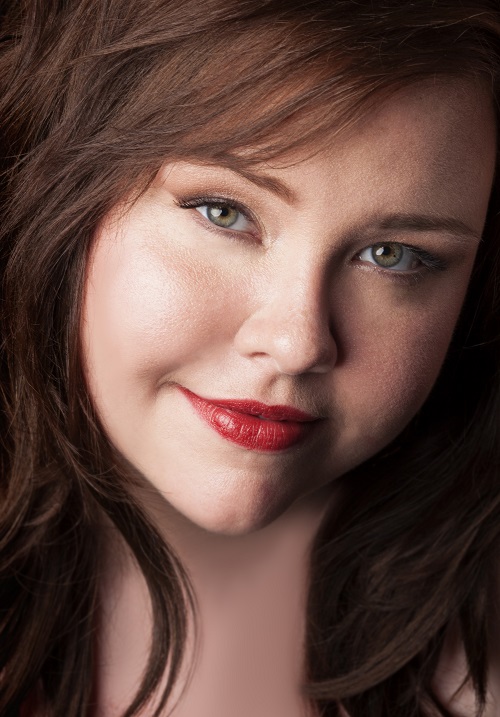 United Kingdom Turina, Brahms, Dvořák, Ives, Sibelius: Jamie Barton (mezzo-soprano), James Baillieu (piano), Wigmore Hall, London, 23.10.2016. (RB)
United Kingdom Turina, Brahms, Dvořák, Ives, Sibelius: Jamie Barton (mezzo-soprano), James Baillieu (piano), Wigmore Hall, London, 23.10.2016. (RB)

Turina – Homenaje a Lope de Vega Op.90
Brahms – Selected Songs
Dvořák – Cigánské Melodien (Gypsy Songs) Op.55
Ives – Selected songs
Sibelius – Selected Songs
I remember watching Jamie Barton’s performances during the Cardiff Singer of the World competition in 2013 and I was impressed with the amazing consistency she demonstrated through a wide range of repertoire. When I heard her performing the Witch’s aria from Hansel and Gretel in the final round I was convinced she should win the first prize and happily the judges agreed on that occasion. This was Barton’s Wigmore Hall début and she appeared relaxed and cheerful on stage talking happily to the audience and engaging in humorous banter.
The recital opened with a triptych of songs by Turina which were written in 1935 and drew on texts from three of Lope de Vega’s dramas. Baillieu opened Cuando tan hermosa os miro with stylish Iberian flourishes before Barton entered in dramatic fashion. Her operatic credentials were fully on display and she brought enormous power, rich colours and perfect intonation to the vocal line. Barton brought a sultry ripeness of tone to Si con mis deseos and she showed her artistry across the vocal register in Al val de Fuente Ovejuna which contained powerful, reverberant low notes and thrilling top notes in the bravura close.
From Turina we moved to a selection of songs by Brahms written across the composer’s career. Baillieu brought enormous charm and lightness of touch to the serenading accompaniment in Ständchen while Barton captured brilliantly the sense of understated whimsy in the song. Unbewegte laue luft foreshadows the corrupting late Romanticism of Richard Strauss. There was much to admire in this performance although it was a little too straight for my taste and I would have liked a little more freedom and a greater range of colour. Von ewiger Liebe is one of my favourite Brahms songs and it received here a very accomplished performance by Barton and Baillieu. I wondered if Barton might have made a little more of the vivid poetry in the early stanzas although the final few stanzas where the maiden speaks were magical.
The first half of the concert closed with Dvořák’s Gypsy Songs which were written in 1880 when the composer was beginning to enjoy an international career. Dvořák’s cycle contains references to Czech folk songs although it is clear that he was also clearly influenced by the Austro-German song-cycle tradition. Baillieu opened the set in boisterous fashion with an energised and highly rhythmic accompaniment before Barton introduced us to the nomadic gypsy. Barton gave a highly sensitive performance of the third song producing wonderful sustained lines and concluding with soft ethereal sounds. The fourth song in the set is justly famous and Barton produced some gorgeous vocal inflections. This was highly emotional and yet beautifully restrained singing that really got beneath the skin of the music. In the final song Baillieu did a superb job with the gypsy Czardas elements and Barton gave a stylish performance, once again showing her operatic credentials at the end of the song.
Given that the concert was supported by the American Friends of Wigmore Hall, it seemed only right and proper that the second half should open with songs by Charles Ives. Barton brought a sense of intimacy and reflection to the opening song, The Things our Fathers Loved while Baillieu moved seamlessly from popular songs and hymn tunes to the conjuring up of the village cornet band. Barton captured the very disturbing elements in Immortality with the repeated line, ‘Who dares to say our child is dead’. The Housatonic at Stockbridge is an arrangement of the third movement of Ives’ Three Places in New England and in this performance I was impressed with Baillieu’s dreamy realisation of the scene. Barton’s performance of The Cage brought home the absurd yet thought provoking question about the meaning of life in a wry, humorous way. Old Home Day is a celebration of the events and characters in our early life about which we reminisce as we get older. Both performers did a brilliant job bringing the scenes depicted in Ives’ poem so vividly to life and Barton brought an affirming, uplifting quality to the music.
The recital concluded with five songs by Sibelius which were written in the earlier, more productive period of the composer’s life. Barton seemed to have no problem moving between Spanish, German, Czech and Swedish – the language of the Sibelius songs. Baillieu gave us some exquisitely delicate playing in the opening section of Säv, säv, susa while Barton moved seamlessly from dreamy lullaby to stirring recitative. Flickan kom ifrån is one of Sibelius’ most celebrated songs and Barton showed her consummate storytelling skills while giving us an incendiary build up bolstered by some wonderful colours in the bass from Baillieu. Var et en dröm produced some uber-Romantic, heart rending singing from Barton, drawing the recital to a triumphant conclusion.
Overall, this was an outstanding recital and the audience clearly agreed as they responded with rapturous applause and a standing ovation. Barton and Baillieu performed some songs from the musical Peter Pan as an encore.
Robert Beattie
